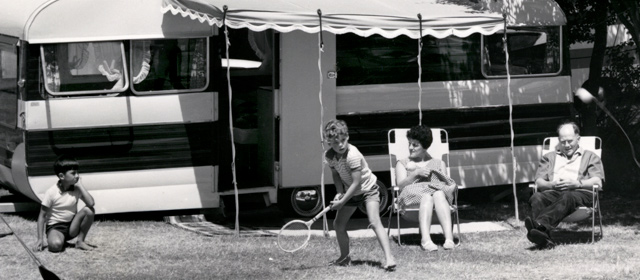Story summary
Early New Zealand camping
Recreational camping was uncommon in New Zealand until the 20th century, but before that many people such as hunters, shepherds and pioneers made camp in the open air when there was no better accommodation available.
The earliest accounts of camping for fun tended to be from relatively wealthy European migrants. In 1907 Katherine Mansfield, later a well-known writer, went on a six-week camping trip with friends through the central North Island. Her group travelled in horse-drawn wagons and slept in tents.
Rise of recreational camping
Camping became more popular over the 20th century, particularly after cars became more widespread. People were able to pack up their tents and other camping equipment and drive to a camping ground. Motor camps, often provided by local councils, could be found in most towns. People could also pitch their tents in public places.
In the 1930s the government passed laws that encouraged camping and taking holidays. Camping grounds in popular areas were often full, especially during the Christmas holidays, which was when most people took their annual leave.
Caravans became popular in the 1950s, and provided a more weatherproof alternative to tents.
School camps
For many years school camps were informal and took place out of school time. The first formal school camp took place in 1938. They became a more common part of school life over the 20th century, and outdoor education a more accepted part of school activities.
Camping in the 2000s
Camping declined in popularity from the late 20th century, as people often preferred a more comfortable way of having a holiday. Many camping grounds closed. In the 2000s campsites are still provided by local councils, the Department of Conservation and private operators. Their facilities range from very basic to internet access and swimming pools.
Freedom camping, which is camping in a place not designated as a camping ground, is legal in much of the country, but is regulated to avoid pollution and disease.





